Boost Learning Through Movement with ABL Labs!
Studies prove that when physical activity is integrated into learning, students show significant improvements in cognition and behavior. That’s why ABL Labs are designed as dynamic, shared spaces available to all students - giving teachers the opportunity to sign up for engaging, movement-based sessions throughout the week.
ABL Labs are the connection between the brain and body. Research highlights 12 core foundational skills that build the framework for learning and cognitive development:
- Cross Lateralization – Strengthening communication between brain hemispheres
- Body in Space Awareness – Enhancing spatial understanding and coordination
- Balance & Stability – Building core strength for better focus and posture
- Visual Development & Tracking – Improving reading and comprehension skills
- Tactile Learning – Engaging multiple senses for deeper learning retention
- Motor Skill Development – Refining fine and gross motor abilities
- Hand/Eye/Foot Coordination – Supporting handwriting, sports, and daily tasks
- Cardiovascular & Physical Fitness – Boosting energy, stamina, and brain function
- Rhythm & Timing – Strengthening pattern recognition for math and music skills
- Problem-Solving Skills – Encouraging critical thinking and adaptability
- Mindfulness & Focus – Enhancing emotional regulation and stress management
By activating these skills through movement, students develop stronger focus, engagement, and a readiness to learn in the classroom. ABL Labs make learning an active, exciting, and effective experience!

Action Based LEarning Labs
Creating The Ideal Learning Space
An ABL Lab is a dedicated space in the school available for use by all teachers and classes. During their assigned time, educators can use the lab to teach any subject. The lab features equipment that encourages light physical activity, increasing blood flow to the brain, improves student behavior, and consequently, boosts learning outcomes.
learn more



Labs provide students an
Advantage to learning
+ reinforce academic concepts, anchor learning, and enhance cognition
+ prepare the brain for learning and testing
+ help students close learning gaps
+ improve mood & boost student confidence
+ make learning fun!

HOw do students benefit from
using the lab?
+ Improved memory/recall & problem solving skills
+ Improved standardized testing scores
+ Ability to focus for longer periods
+ Increased confidence & lower test taking anxiety
+ Improved mood and behavior

PRE K - 2nd GRADE
ACTION BASED LEARNING LAB
Each active learning station in the lab, applies what we know about the brain body connection by focusing on the 12 Foundations of Learning Readiness. For example, the body’s vestibular system controls balance and spatial awareness. Strengthening these foundations facilitates the student's ability to place words and letters on a page. When a student walks or crawls in specific patterns, the brain’s ability to encode symbols is increased. Proper development and remediation of these systems are critical to a child's ability to learn.
K-2 ABL Lab Packages -->
3rd-6th Grade
body brain adventure lab
The ABL Lab builds on 12 core foundational skills and their developmentally appropriate progressions. By working on these critical foundations, each child is provided an opportunity to maximize their full learning potential. Each active learning station in the lab applies what we know about the brain/body connection by focusing on the 12 Foundations of Learning Readiness. For example, the body’s vestibular system controls balance and spatial awareness. Strengthening these foundations facilitates the student's ability to place words and letters on a page. When a student walks or crawls in specific patterns, the brain’s ability to encode symbols is increased. Proper development and remediation of these systems are critical to a child's ability to learn.
3rd-6th ABL Lab Packages -->
6-12th Grade
neuronasium lab
Research shows a strong connection between the brain and body is the link to overall cognitive development. There are 12 core foundational skills that help students build the framework, and prepare their brains, for learning:
cross lateralization, body in space, balance, visual development, tactile learning, motor skills, visual tracking, hand/eye/foot coordination, cardiovascular and physical fitness, rhythm, problem solving, and mindfulness.
Neuronasium lab packages -->
cross lateralization, body in space, balance, visual development, tactile learning, motor skills, visual tracking, hand/eye/foot coordination, cardiovascular and physical fitness, rhythm, problem solving, and mindfulness.
ELEMENTARY CONTENT SPECIFIC ABL LAB
MATH IMMERSION LAB
Action Based Learning Math Immersion Labs are designed to prepare the brain for learning. Each active learning station in the lab applies what we know about the brain body connection, supporting the link between movement to improved academics. The immersion lab uses purposeful movement layered with mathematics to reinforce what is being taught in the classroom.
Customize your math immersion lab package -->
DESIGN AN ACTION BASED LEARNING
ABL SENSORY LAB
This interactive lab introduces an active sensory environment with developmentally appropriate activities that assist children with body awareness, fine and gross motor skills, cross-lateralization, vestibular development, proprioception, strength, flexibility and mindfulness.
The Sensory Lab uses kinesthetic movement and playful activities to help students learn and master the 12 developmental foundations for success.
*The Sensory Lab is strongly based on the nationally recognized 12 Foundations of Learning Readiness skills. Lab Facilitators can incorporate academics and plan instruction based on developmental stages of reading, math, & spelling, utilizing the 12 Foundations of Learning Readiness.
Customize your ABL sensory lab package -->
The Sensory Lab uses kinesthetic movement and playful activities to help students learn and master the 12 developmental foundations for success.
*The Sensory Lab is strongly based on the nationally recognized 12 Foundations of Learning Readiness skills. Lab Facilitators can incorporate academics and plan instruction based on developmental stages of reading, math, & spelling, utilizing the 12 Foundations of Learning Readiness.
SHOP BY FOUNDATION

View Products



![[K-2nd] ABL Lab - Action Based Learning](http://abllab.com/cdn/shop/files/Screenshot2024-10-01at9.52.18AM_{width}x.png?v=1727790748)
![[K-2nd] ABL Lab - Action Based Learning](http://abllab.com/cdn/shop/products/69dd824b182ed1931e43ada2bc0acf96_2_{width}x.jpg?v=1723747361)
![[3-5th] ABL Lab - Action Based Learning](http://abllab.com/cdn/shop/files/Screenshot2024-10-01at9.51.38AM_{width}x.png?v=1727790711)
![[3-5th] ABL Lab - Action Based Learning](http://abllab.com/cdn/shop/files/Screenshot_2024-08-15_at_2.27.45_PM_{width}x.png?v=1723746534)
![[MS/HS] Neuronasium Lab - Action Based Learning](http://abllab.com/cdn/shop/files/Screenshot2025-02-04at12.57.14PM_{width}x.png?v=1738698769)
![[MS/HS] Neuronasium Lab - actionbasedlearning](http://abllab.com/cdn/shop/products/Screen_Shot_2019-10-28_at_3.54.49_PM_{width}x.png?v=1738698769)















